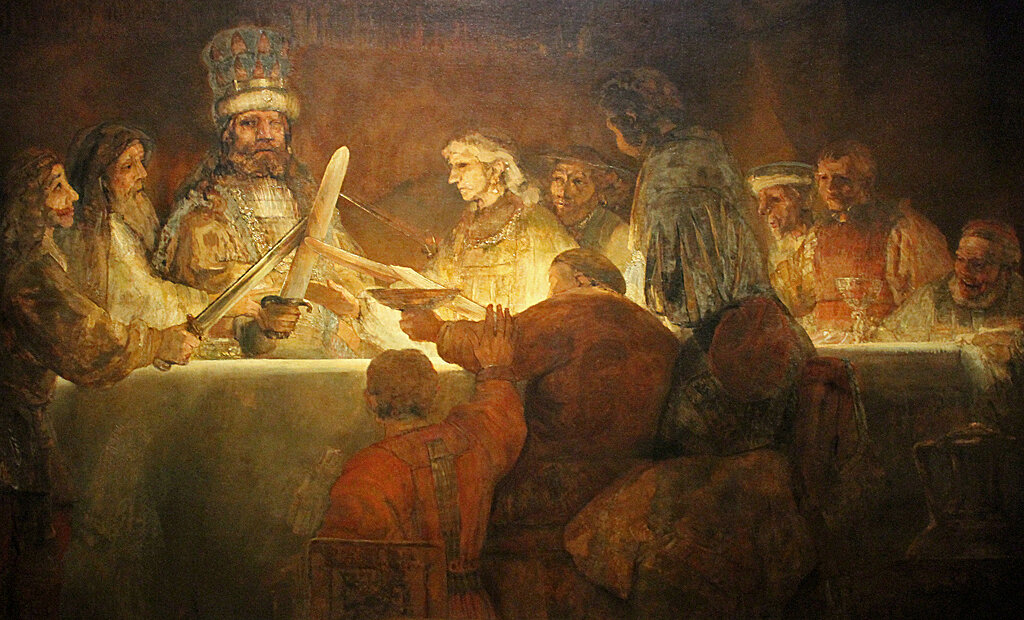What Kinds of Conspiracy Theorists Will You Meet at Parties?
Imagine you’re at a party. A friend says they want to introduce you to someone. Before bringing the person over, your friend says “Oh, and by the way, he’s a bit of a conspiracy theorist.” What are you expecting? Maybe you’ve met someone who thinks that the market for sunglasses is secretly dominated by one company. Maybe you’ve met someone who believes that the Middle Ages never actually happened. What distinguishes one sort of conspiracy theorist from another? Is there only one kind?
Indeed, philosophers too, have tried to diagnose ‘conspiratorial thinking’ and its varieties. Famed philosopher of science Karl Popper saw conspiratorial thinking as all too popular in the mid 20th century. Popper was criticizing what he called ‘vulgar Marxists’, who too often suspected that the ‘capitalist class’ was consciously repressing the ‘truth’ in education and media. This ‘conspiracy of ignorance’, as Popper called it in his book Conjectures and Refutations, is a classic and still familiar trope among conspiracy theories.
It envisioned small groups of people in power coordinating in secret (with malicious intent) to control society.
Frans Vandewalle / CC BY-NC 2.0
Sometimes Conspiracy Theories are Right
Someone accused of being a conspiracy theorist may have a swift response to these kinds of accusations. Not all conspiracy theories are wrong! Indeed some governments really did use false flags to start wars. Corporations really have used personal data to sway democratic elections. Unwitting citizens really have been subjected to secret experiments. Naturally, this means that those ‘conspiracy theorists’ who once hypothesized about these events were right. In fact, famed American Pragmatist philosopher John Dewey helped investigate Stalin’s conspiracy to convict political enemies throughout the Moscow Show Trials.
If you didn’t already think so, it should be clear now that suspecting conspiracy is sometimes warranted. Now and again, people do collaborate in secret to accomplish their goals. In a minimal, maybe even trivial sense, we all need to be conspiracy theorists.
Yet, when we call someone that, it seems we mean something more. Is it simply that some conspiracy theories are warranted, and others are not? Should we look to social science for a measure of warranted belief? What about the difference between someone who happens to believe in one unwarranted conspiracy, and someone who believes in hundreds? What separates your friend at a party who thinks Tupac is alive in the Balkans, from someone shouting about the ‘New World Order’ on the street or a forum?
The Gods of Olympus and Lizard People
The argument that “sometimes conspiracy theories are true” is to be expected. Investigating which are warranted and unwarranted is empirical work. Philosophically though, another distinction can be made. Take someone who happens to think that Princess Diana was murdered. It’s pretty pedestrian. In fact, it hardly warrants the title ‘conspiracy theorist’. Next, imagine someone who believes the world to be a stage, where crises, wars, and revolutions are acted out for an unwitting audience, all at the behest of hidden directors - possibly lizard people. A considerable gulf divides these two sorts of people.
Popper described the view held by the latter as the ‘conspiracy theory of society’. Whereas any given conspiracy theory typically explains a single event or phenomenon, the conspiracy theory of society regards society itself, its history and future, as one grand conspiracy. This view of history, Popper argued, resembles Homer’s epics. In the Iliad, the lives and deeds of the Greeks and Trojans are fated as a consequence of the conspiracies of the gods on Olympus. What happens between people is secondary to the gods. Some of today’s most notable conspiracies regard Trump and George Soros (among others) like modern day Zeus and Hades.
Those who subscribe to the Homeric conspiracy theory of society believe that people’s freedom, power, knowledge, and fates are tethered to these hidden titans of history. Hence Popper suggests that the conspiracy theory of society is a worldview as all-encompassing as a religion. Indeed, it has the scope and ambition of any self-proclaimed philosophy of history.
The Conspiracy Theory of Society as a Philosophy of History
Most philosophies of history ask the same questions which a hardcore conspiracy theorist asks. What is history anyway? What ‘objects’ make it up? Is history composed of a series of events or processes? Do things happen predictably according to rules that allow us to forecast the future? Or is history subject to chance? What forces have the power to shape it anyway? A philosophy of history is a philosophy of what history really is.
There are other questions and concepts philosophy of history can concern itself with of course. Yet common fundamentals are found in the conspiracy theory of society. This helps us answer the question we have repeated throughout this article: What separates someone who only believes Elvis is still alive, from someone who believes that the earth is flat? The difference is a matter of how fundamental conspiracy is to their worldview. For some, it may be incidental. For others, it is fundamental. The conspiracy theory of society structures how history itself is interpreted.
The New Conspiracism as a Skepticism
Some fear that yet a new variety of conspiratorial belief is upon us. In their recent book A Lot of People are Saying, Russell Muirhead and Nancy Rosenblum describe what they call ‘the new conspiracism’. We can take Popper’s conspiracy theory of society to be the old conspiracism. The new conspiracism is similar. It consists of a comprehensive suspicion that events are engineered in secret. Whereas an old conspiracist would offer an alternative interpretation of history, the new conspiracists do not.
At a party, an old conspiracist might interrupt a story about the moon landing and say “That didn’t happen, what actually happened was…” and offer an alternative. The new conspiracist has a different trademark phrase. Instead of insisting they know what actually happened, the new conspiracist shrugs, and says, “Well, a lot of people are saying that didn’t happen.” The argument stops there. Muirhead and Russell’s new conspiracist does not offer a philosophy of history like Popper’s conspiracy theorist of society. Instead, the new conspiracist is just a skeptic.
The new conspiracism consists more in doubt than in belief. The old conspiracist has a wall in their house covered with newspaper clippings, a blog of well-cited essays, and volumes of books by fringe authors. The new conspiracist has simply heard the dissent of the old, enough to refuse to believe at all. If the conspiracy theory of society was a theism, the belief in ‘gods’ as conspirators, the new conspiracism is a trenchant agnosticism. Old conspiracism is the classic ‘conspiracy theorist’ you may think of. New conspiracism hardly even theorizes.
So, think of the ‘conspiracy theorists’ you’ve met, at parties or otherwise. What sort were they? Do they simply believe that a handful of commonly accepted stories happened differently? Or do they believe that society itself is a product of conspiracy? Do they propose their own versions of history, or simply doubt?



